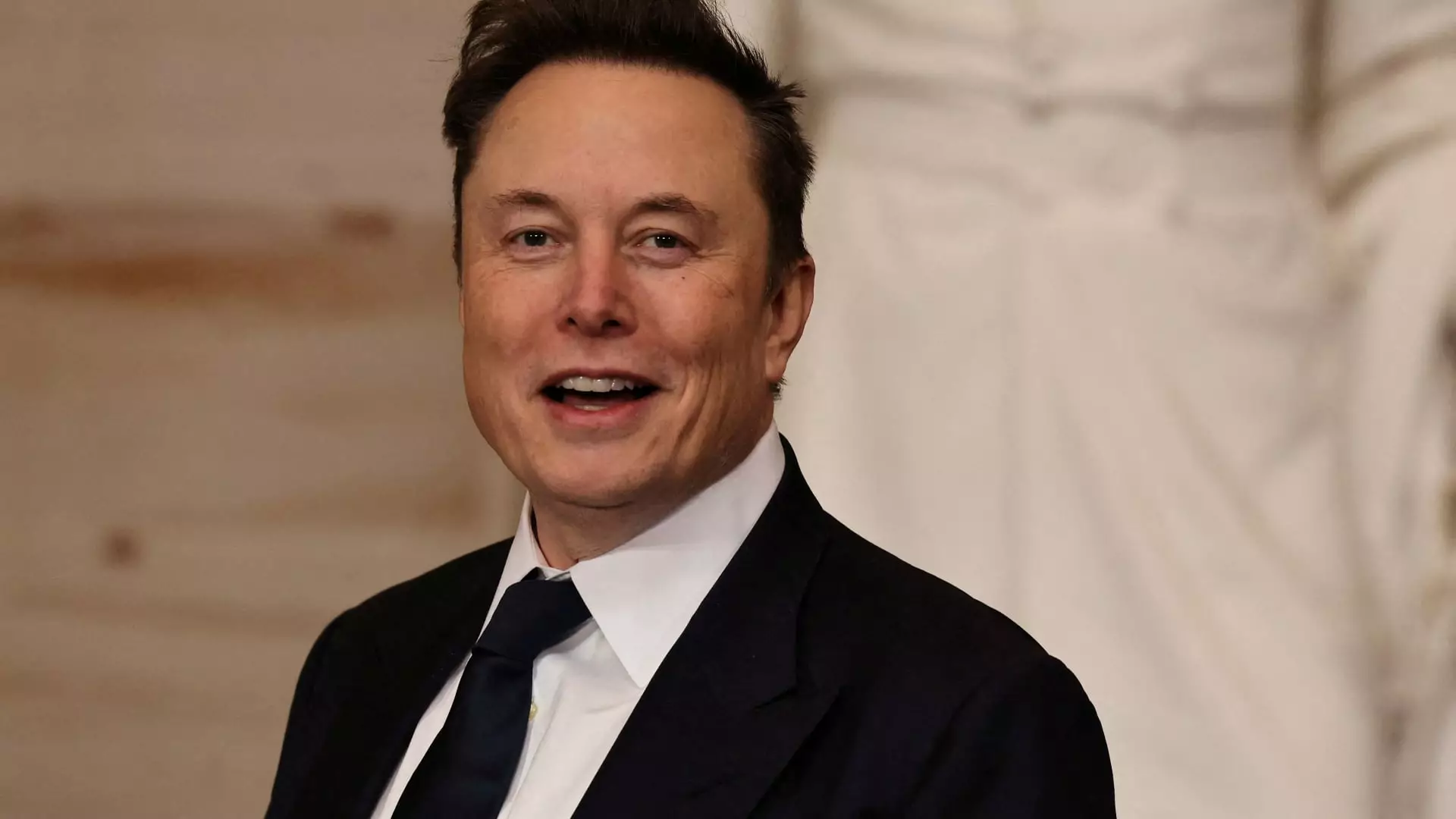Tesla’s recent proposal to drastically increase CEO Elon Musk’s compensation package reveals a troubling trend within corporate leadership—an obsession with exceptional personal wealth that borders on greed rather than responsible stewardship. While the company claims that such a pay package is essential to keep Musk focused amid his burgeoning portfolio of private ventures, this logic distracts from the core purpose of corporate leadership: serving shareholders, employees, and society at large. Instead, it underscores an increasingly dangerous idea that extraordinary personal wealth can drive innovation, when in reality, it can distort priorities and foster reckless ambition.
Musk’s desire for a package that could be worth a staggering $1 trillion demonstrates an alarming detachment from economic reality. This amount would dwarf most human achievements and could, arguably, power a host of societal reforms or environmental initiatives if reallocated. But, instead, it becomes entangled in a narrative of self-preservation and dominance over multiple industries—space exploration, artificial intelligence, automotive manufacturing—that risks perpetuating the myth that wealth is a primary measure of innovation and influence. The logic that Musk must be incentivized to the edge of absurdity reveals a profound lack of trust in corporate values and an overemphasis on individual prowess.
The Erosion of Corporate Responsibility in Favor of Personal Empires
At the heart of this controversy lies a broader issue: the shifting landscape of wealth concentration among tech moguls and industry titans. Musk, whose wealth has swung from Tesla stock to private ventures such as SpaceX and xAI, exemplifies how the modern billionaire’s purse has shifted away from their root companies, often creating competing interests that threaten to destabilize the very organizations that elevated them.
This movement away from corporate accountability is dangerous. The diversification of Musk’s wealth, driven by soaring valuations of his private companies, paints a picture of a man whose priorities seem increasingly rooted in maintaining and expanding personal assets rather than driving societal progress. Such concentrated wealth, if unchecked, fosters inequality and limits the democratic distribution of opportunity, allowing a few to wield influence disproportionate to their contribution to public wellbeing.
While shareholders will ultimately have their say, the logic underpinning this package is fundamentally flawed. It suggests that you can only retain a person of Musk’s caliber through personal riches—that society’s most transformative innovators are best incentivized by monetary stakes, rather than meaningful governance, ethical considerations, or public accountability. This mindset risks turning corporate stewardship into a game of wealth accumulation rather than societal problem-solving.
The Rising Power of Private Interests and the Threat to Democratic Oversight
As Musk’s private ventures grow more valuable, his personal influence becomes increasingly uncontested. With SpaceX valued at nearly twice its previous valuation and xAI’s rapid ascent to a potential $200 billion valuation, the concentration of wealth and power risks overpowering regulatory frameworks. Musk’s control over such influential entities raises fundamental questions about accountability and the democratic basis of corporate governance.
The fact that Musk owns over 50% of xAI, with a stake worth well north of $100 billion, demonstrates how private interests can overshadow public oversight. While this personal empire might advance technological frontiers, it simultaneously minimizes the checks and balances that should safeguard societal interests. His argument for maintaining voting control over Tesla to prevent external takeovers reveals a preoccupation with power consolidation, rather than leveraging that influence responsibly.
There’s a disturbing implication that wealth and control are what truly matter, rather than transparency and societal benefit. The mounting valuations of Musk’s private companies suggest a future where innovation is driven more by profitability and personal incentives than by the common good. This approach creates an unequal playing field, where a select few craft policies and priorities that serve their interests first—potentially at the expense of broader societal progress.
A Critical Reflection on the Future of Wealth and Innovation
The emerging narrative around Musk’s extraordinary compensation plan exemplifies a broader crisis: how unchecked wealth accumulation among a handful of elites could distort the spirit of innovation. Instead of fostering a culture of shared progress and responsibility, it risks cultivating a culture of greed, dominance, and detachment from societal needs.
While innovation is undoubtedly necessary for societal advancement, equating it with personal wealth maximization is perilous. Wealth should serve as a tool for societal betterment, not a trophy for individual conquest. Musk’s apparent obsession with securing maximum control and personal wealth signals a future where technological breakthroughs may be hamstrung by billionaire interests, rather than aligned with the collective good.
In a society battling widening inequalities and environmental crises, celebrating such an obsession with riches and power does little to foster sustainable, inclusive growth. Society needs to question whether the pursuit of personal fortune—especially in mind-boggling amounts—is diminishing our ability to prioritize genuine societal needs, or whether it accelerates the social divide into an unbridgeable chasm. The real innovation lies not in the size of one’s bank account but in the capacity to channel intelligence and resources toward meaningful, shared progress.

